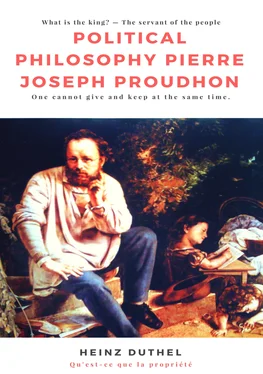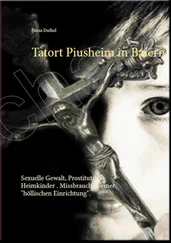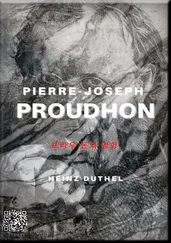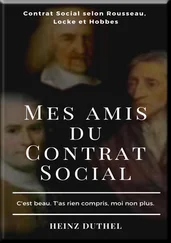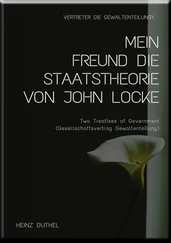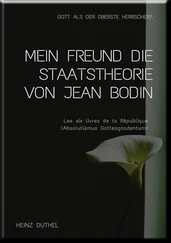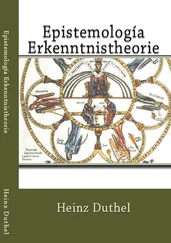Political Philosophy Pierre Joseph Proudhon
One cannot give and keep at the same time.
Heinz Duthel
Copyright © 2011 – 2018 Heinz Duthel
All rights reserved.
DEDICATION
"Whoever lays his hand on me to govern me is a usurper and tyrant, and I declare him my enemy." (1849)
What is the king? — The servant of the people.
This was a sudden revelation: the veil was torn aside, a thick bandage fell from all eyes. The people commenced to reason thus: —
If the king is our servant, he ought to report to us;
If he ought to report to us, he is subject to control;
If he can be controlled, he is responsible;
If he is responsible, he is punishable;
If he is punishable, he ought to be punished according to his merits;
If he ought to be punished according to his merits, he can be punished with death.
ACKNOWLEDGMENTS
To my teacher and best friend, Dr. Joachim Koch. University of Regensburg. Publisher of www.philosophers-today.com
Although ultimately overshadowed by Karl Marx, who dismissed him as a bourgeois socialist for his pro-market views, (16 ) Proudhon had an immediate and lasting influence on the anarchist movement, and, more recently, in the aftermaths of May 1968 and after the end of the Cold War.
He was first used as a reference, surprisingly, in the Cercle Proudhon, a right-wing association formed in 1911 by George Valois and Edouard Berth. Both had been brought together by the syndicalist Georges Sorel. But they would tend toward a synthesis of socialism and nationalism, mixing Proudhon's mutualism with Charles Maurras' integralist nationalism. In 1925, George Valois founded the Faisceau, the first fascist league which took its name from Mussolini's fascism.
In addition to being considered a philosophical anarchist, he has also been considered by some to be a forerunner of fascism. (17 ) Historian of fascism, in particular of French fascists, Zeev Sternhell, has noted this use of Proudhon by the far-right. In The Birth Of Fascist Ideology, he states that:
"the Action Française...from its inception regarded the author of La philosophie de la misère as one of its masters. (18 ) He was given a place of honour in the weekly section of the journal of the movement entitled, precisely, 'Our Masters.' Proudhon owed this place in L'Action française to what the Maurrassians saw as his antirepublicanism, his anti-Semitism, his loathing of Rousseau, his disdain for the French Revolution, democracy, and parliamentarianism: and his championship of the nation, the family, tradition, and the monarchy."
But Proudhon's legacy has not been limited to the instrumentation of his thought by the revolutionary right (la droite révolutionnaire). He also influenced the non-conformists of the 1930s, (19 ) as well as classical anarchism. In the 1960s, he became the main influence of autogestion (workers' self-management) in France, inspiring the CFDT trade-union, created in 1964, and the Unified Socialist Party (PSU), founded in 1960 and led until 1967 by Édouard Depreux. In particular, autogestion influenced the LIP self-management experience in Besançon.
Proudhon's thought has seen some revival since the end of the Cold War and the fall of "real socialism" in the Eastern Bloc. It can be loosely related to modern attempts at direct democracy. The Groupe Proudhon, related to the Fédération Anarchiste (Anarchist Federation), published a review from 1981 to 1983 and again since 1994. (The first period corresponds with the 1981 election of Socialist candidate François Mitterrand and the economic liberal turn of 1983 taken by the Socialist government.) It is staunchly anti-fascist and related to the Section Carrément Anti Le Pen which opposes Jean-Marie Le Pen). (20 ) English-speaking anarchists have also attempted to keep the Proudhonian tradition alive and to engage in dialogue with Proudhon's ideas: Kevin Carson's mutualism is self-consciously Proudhonian, and Shawn P. Wilbur has continued both to facilitate the translation into English of Proudhon's texts and to reflect on their significance for the contemporary anarchist project.
Pierre-Joseph Proudhon (15 January 1809 in Besançon – 19 January 1865 in Passy) was a French politician, mutualist philosopher and socialist. He was a member of the French Parliament, and he was the first person to call himself an anarchist. He is considered among the most influential of anarchist writers and organisers. After the events of 1848 he began to call himself a federalist. (1 )
Proudhon was a printer who taught himself Latin in order to better print books in the language. His best-known assertion is that Property is Theft!, contained in his first major work, What is Property? Or, an Inquiry into the Principle of Right and Government (Qu'est-ce que la propriété?
Recherche sur le principe du droit et du gouvernement), published in 1840.
The book's publication attracted the attention of the French authorities. It also attracted the scrutiny of Karl Marx, who started a correspondence with its author. The two influenced each other: they met in Paris while Marx was exiled there. Their friendship finally ended when Marx responded to Proudhon's The System of Economic Contradictions, or The Philosophy of Poverty with the provocatively titled The Poverty of Philosophy.
The dispute became one of the sources of the split between the anarchist and marxist wings of the International Working Men's Association. Some, such as Edmund Wilson, have contended that Marx's attack on Proudhon had its origin in the latter's defense of Karl Grün, whom Marx bitterly disliked but who had been preparing translations of Proudhon's work.
Proudhon favored workers' associations or co-operatives, as well as individual worker/peasant ownership, over the nationalization of land and workplaces. He considered that social revolution could be achieved in a peaceful manner.
In The Confessions of a Revolutionary Proudhon asserted that, Anarchy is Order, the phrase which much later inspired, in the view of some, the anarchist circled-A symbol, today "one of the most common graffiti on the urban landscape." (2 )
He unsuccessfully tried to create a national bank, to be funded by what became an abortive attempt at an income tax on capitalists and stockholders. Similar in some respects to a credit union, it would have given interest-free loans.
Proudhon was born in Besançon, France; his father was a brewer's cooper. As a boy, he herded cows and followed other similar, simple pursuits. But he was not entirely self-educated; at age 16, he entered his town's college, though his family was so poor that he could not buy the necessary books. He had to borrow them from his fellow students in order to copy the lessons. At age 19, he became a working compositor; later he rose to be a corrector for the press, proofreading ecclesiastical works, and thereby acquiring a very competent knowledge of theology. In this way also he came to learn Hebrew, and to compare it with Greek, Latin and French; and it was the first proof of his intellectual audacity that on the strength of this he wrote an Essai de grammaire génerale. As Proudhon knew nothing of the true principles of philology, his treatise was of no value (citation needed ). In 1838, he obtained the pension Suard, a bursary of 1500 francs a year for three years, for the encouragement of young men of promise, which was in the gift of the Academy of Besançon.
Interest in politics
In 1839, he wrote a treatise L'Utilité de la célébration du dimanche, which contained the seeds of his revolutionary ideas. About this time he went to Paris, France where he lived a poor, ascetic and studious life, but became acquainted with the socialist ideas which were then fomenting in the capital. In 1840 he published his first work Qu'est-ce que la propriété (or "What Is Property"). His famous answer to this question, "La propriété, c'est le vol" ("property is theft"), naturally did not please the Academy of Besançon, and there was some talk of withdrawing his pension; but he held it for the regular period.
Читать дальше
